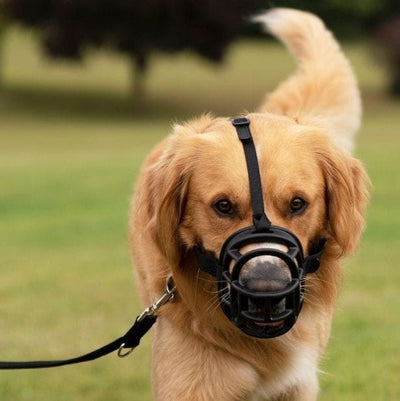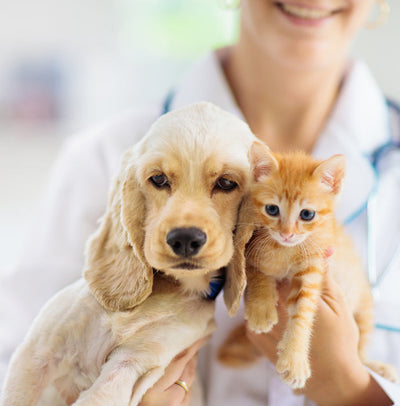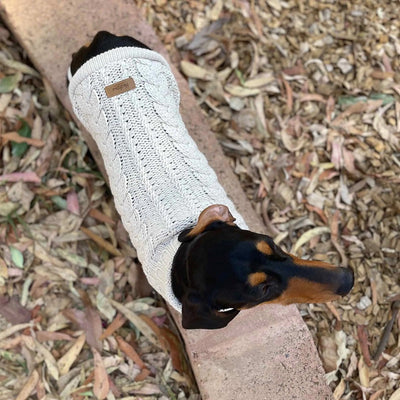
Losing a pet dog is never easy, but when that dog happens to be your best friend, the pain can be overwhelming. Dogs have an incredible ability to love unconditionally, and they become an integral part of our lives. When they pass away, it can feel like a part of us has been taken away too. But, it's important to remember that grieving is a natural process and everyone experiences it differently. In this article, we'll explore how to navigate the grieving process after losing a pet dog. From acknowledging your feelings to finding ways to honour their memory, we'll cover practical tips and emotional support to help you cope during this difficult time. Whether you're dealing with the loss of a furry companion for the first time or have experienced it before, we hope this article serves as a source of comfort and guidance in your time of need.
Understanding Grief and Loss
Grief is a natural and normal response to loss. It's a process that takes time and is unique to each individual. When you lose a pet dog, it's important to recognise that the grieving process can be just as intense as when you lose a human loved one. You may experience a range of emotions such as sadness, anger, guilt, and even denial. It's okay to feel these emotions and it's important to allow yourself to grieve in your own way.
One of the most challenging aspects of losing a pet dog is that they are often considered a part of the family. They are a constant presence in our lives and provide us with unconditional love and support. When they pass away, we can feel a deep sense of loss and emptiness. It's important to remember that it's okay to feel this way and that you are not alone. Many people have experienced the loss of a pet dog and understand the pain that you are going through.
It's also important to recognise that everyone grieves differently. Some people may feel overwhelmed by their emotions and need time alone to process their feelings. Others may find solace in being around family and friends or engaging in activities that they enjoy. Whatever your grieving process looks like, it's important to honour your feelings and take the time that you need to heal.
The Grieving Process After Losing a Pet Dog
The grieving process after losing a pet dog can be similar to the grieving process after losing a human loved one. There are typically five stages of grief that people go through: denial, anger, bargaining, depression, and acceptance. It's important to note that not everyone experiences these stages in the same order and some may skip certain stages altogether.
Denial is often the first stage of grief. It's when you initially refuse to accept the reality of the situation. You may find yourself thinking that your pet dog will come back or that there must be some mistake.
Anger is the second stage of grief and can be intense. You may feel angry at yourself, your pet dog, or even at the world for taking them away from you. These feelings are normal, and it's important to find healthy ways to express them.
Bargaining is the third stage of grief. It's when you try to negotiate with a higher power or try to change the outcome of the situation. You may find yourself thinking, "If only I had done this differently, my pet dog would still be here."
Depression is the fourth stage of grief and can be the most difficult. It's when the reality of the situation sets in and you begin to feel a deep sense of sadness and loss. You may find yourself withdrawing from social activities, feeling fatigued, or experiencing changes in appetite and sleep patterns.
Acceptance is the final stage of grief. It's when you come to terms with the reality of the situation and begin to find ways to move forward. You may still feel sadness and pain, but you are able to start cherishing the memories of your pet dog.
Coping Mechanisms for Dealing with Grief
Dealing with grief is never easy, but there are coping mechanisms that can help make the process more manageable. Here are some strategies that you can use to cope with the loss of your pet dog:
Allow Yourself to Feel Your Emotions
The first step to coping with grief is to allow yourself to feel your emotions. It's normal to feel a range of emotions such as sadness, anger, guilt, and even denial. It's important to recognise that these emotions are a natural part of the grieving process and that you are not alone.
Find Ways to Express Your Emotions
Finding healthy ways to express your emotions can be helpful in coping with grief. You may find solace in journaling, writing a letter to your pet dog, or even creating a scrapbook of your favorite memories. It's important to find a way to express your emotions that feels comfortable and natural for you.
Seek Support from Family and Friends
Talking to family and friends can be a great source of support during the grieving process. They can offer a listening ear, share memories of your pet dog, and provide emotional support. It's important to surround yourself with people who understand what you're going through and can offer comfort and support.
Take Care of Yourself
Taking care of yourself is crucial during the grieving process. This can include getting enough sleep, eating a healthy diet, and engaging in activities that you enjoy. It's important to prioritize self-care and allow yourself the time and space that you need to heal.
Consider Professional Support
If you're finding it difficult to cope with your grief, consider seeking professional support. A therapist or counselor can offer emotional support, help you process your feelings, and provide coping strategies.
Taking Care of Yourself During the Grieving Process
Taking care of yourself is crucial during the grieving process. Here are some strategies that you can use to prioritize self-care during this difficult time:
Prioritise Sleep
Getting enough sleep is crucial during the grieving process. It's important to establish a regular sleep routine and aim for 7-8 hours of sleep per night. If you're having trouble sleeping, consider implementing relaxation techniques such as meditation or deep breathing exercises.
Eat a Healthy Diet
Eating a healthy diet is also important during the grieving process. It's important to prioritise whole foods such as fruits, vegetables, lean protein, and whole grains. Avoid processed foods and limit your intake of caffeine and alcohol.
Engage in Physical Activity
Engaging in physical activity can be helpful in coping with grief. Exercise has been shown to improve mood, reduce stress, and increase overall well-being. Aim for at least 30 minutes of moderate physical activity per day.
Practice Relaxation Techniques
Relaxation techniques such as meditation, deep breathing exercises, and yoga can be helpful in reducing stress and promoting relaxation. Find a technique that works for you and practice it regularly.
Allow Yourself to Take Breaks
It's important to allow yourself to take breaks during the grieving process. This can include taking a day off from work, spending time alone, or engaging in an activity that you enjoy. It's important to find ways to recharge and take care of yourself.
Honouring Your Pet Dog's Memory
Honouring your pet dog's memory can be a helpful way to cope with grief. Here are some ways that you can honour their memory:
Create a Memorial
Creating a memorial for your pet dog can be a helpful way to honour their memory. This can include creating a scrapbook, planting a tree in their honour, or making a donation to a pet-related charity.
Display Photos or Keepsakes
Displaying photos or keepsakes of your pet dog can also be a helpful way to honour their memory. This can include displaying a favourite photo, framing a paw print, or keeping their favourite toy on display.
Write a Letter or Journal
Writing a letter or journal entry to your pet dog can be a helpful way to express your emotions and honor their memory. You may find it helpful to write about your favorite memories or express your feelings of love and loss.
Finding Support During the Grieving Process
Finding support during the grieving process is crucial. Here are some resources that you can turn to for support:
Pet Loss Support Groups
Pet loss support groups can be a helpful way to connect with others who are experiencing similar feelings of grief and loss. These groups can provide emotional support and a safe space to share your feelings and memories.
Online Communities
There are many online communities and forums that are dedicated to pet loss. These communities can provide a sense of connection and support during the grieving process.
Professional Support
If you're finding it difficult to cope with your grief, consider seeking professional support. A therapist or counselor can offer emotional support, help you process your feelings, and provide coping strategies.
When to Seek Professional Help
If you're finding it difficult to cope with your grief, it may be time to seek professional help. Here are some signs that it may be time to seek professional support:
You're Having Trouble Functioning in Your Daily Life
If you're finding it difficult to function in your daily life due to your grief, it may be time to seek professional support. This can include difficulty sleeping, eating, or engaging in activities that you enjoy.
Your Grief is Interfering with Your Relationships
If your grief is interfering with your relationships with family and friends, it may be time to seek professional support. This can include feeling distant or disconnected from loved ones or having difficulty communicating your feelings.
Your Grief is Affecting Your Mental Health
If your grief is affecting your mental health, it may be time to seek professional support. This can include feelings of depression, anxiety, or suicidal thoughts.
Contacts for Grief Support in Australia
Always seek out help and support if you need help, there are special pet grief counsellors available (try searching under pet bereavement counselling) that you can see as well as reaching out to organisations such as:
Coping with the Loss of a Pet Dog in the Long Term
Cherish the Memories
Cherishing the memories of your pet dog can be a helpful way to cope with their loss in the long term. You may find it helpful to create a memory box or scrapbook, or to display photos and keepsakes in your home.
Find Meaning in the Loss
Finding meaning in the loss of your pet dog can also be a helpful way to cope in the long term. This can include volunteering at a pet-related charity or starting a fundraiser in their honour.
Consider Adopting Another Pet
While adopting another pet may not be the right choice for everyone, it can be a helpful way to cope with the loss of your pet dog. It's important to take the time to grieve before considering another pet, but adopting a new furry companion can bring joy and companionship back into your life.
Cherishing the Memories of Your Pet Dog
Losing a pet dog is never easy, but it's important to remember that grieving is a natural process and everyone experiences it differently. From acknowledging your feelings to finding ways to honor their memory, there are practical tips and emotional support available to help you cope during this difficult time. Remember to take care of yourself, seek support when you need it, and cherish the memories of your pet dog.
© weknowpets 2023





